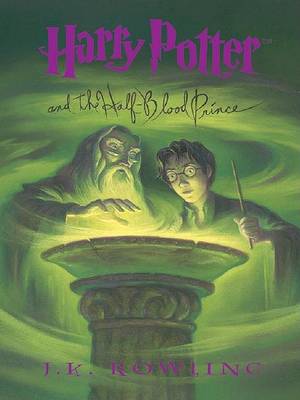Reviewed by clementine on
The other thing is Ginny. Ahh, Ginny. She is much more likeable in the books, which is odd because I generally find that the movies are more successful with the characterization of certain tricky characters (Draco in particular; he's much more fleshed out in the movies, thanks to Tom Felton's stellar acting). However, I still find her... well, not entirely sympathetic, and I remain unconvinced that she was the best choice for Harry's eternal love. I don't really enjoy Harry's dating exploits in general. This isn't because I don't think they have a place in the book - Jo does a good job of interweaving them with the plot in an unobtrusive way, and I certainly think it adds realism to the story, as it is quite likely for Harry to have some sort of romantic life between the ages of eleven and seventeen. I just don't think that any of Harry's love interests are particularly compelling. Cho, I suppose, was always supposed to be an awkward sort of relationship - but Jo just never managed to convince me with Ginny, unfortunately. Luckily that is a relatively small portion of HBP.
I really like the characterization and character development here, particularly because there is so much revealed (or at least hinted at) if you read closely - which, of course, you ought to do when reading something written by the genius JK Rowling. For example, although it seems at the end that Snape is quite clearly evil (something which becomes especially set in stone once we learn that McGonagall - trusted, whip-smart McGonagall - believes him to be guilty), there are some very subtle (but clear) hints that he may in fact not be so unambiguously bad. Of course, we also get to see how Voldemort became the man he is today, which is obviously a necessary component of the series, as no man becomes Lord Voldemort without a serious backstory. Slughorn, I think, is a particularly good character, because he is neither likeable nor detestable. He is certainly pompous, and self-impressed, and maybe a bit too prone to name dropping, but he isn't a horrible person and I think that, generally, his heart was in an okay place. When Harry first meets him he doesn't know what to think of him, and this is generally the impression his character leaves. And Draco! Don't let me forget Draco! Poor, conflicted Draco. Ahh. This is where his character becomes truly rich and wonderful.
In terms of plot, HBP mimics PoA in certain respects. It really isn't very action-oriented, with most of the exciting stuff happening right before the end, on Dumbledore's last mission. Indeed, much of the text is expository. The Pensieve is a really great vehicle for this sort of thing, and the backstory was interesting enough that I didn't feel like it was an info-dump. Again, I don't think a lack of action is a detriment when done correctly; PoA is a highly enjoyable book and it's traditionally seem as the book where the least happens.
The end of HBP is incredibly powerful. The Horcrux hunting scene is tense and filled with all sorts of emotions as Harry sees his headmaster - the man who has been his rock, who has made him feel safe, who has always had answers, who believes in him, who he has always been able to turn to - become weakened, and has to force him to drink the horrible potion. Then, of course, minutes after their return to Hogwarts, he is killed by Snape. I will tell you, the first time I read HBP I would not accept that Dumbledore was dead. I literally did not believe it until a good chunk of the way through Deathly Hallows some two years later. This time, I started getting teary round about the cave scene and really sobbed from Dumbledore's death right through to the end. I know that he was going to die anyway what with the curse and that it was his wish that Snape kill him instead of Draco, but DAMN, SON.
So, uh, this has been long. HBP is less good than I remembered it, I think. It has its issues and it's not as compelling as the previous two, in my opinion. But, of course, it sets the scene for the final book, which I have already started and which I will probably finish on Tuesday or Wednesday. (I'm sad, though. I always forget how hard it is to extract myself from the world of these books.)
Reading updates
- Started reading
- 13 September, 2012: Finished reading
- 13 September, 2012: Reviewed
- Started reading
- Finished reading
- 13 September, 2012: Reviewed
- Started reading
- Finished reading
- 13 September, 2012: Reviewed
